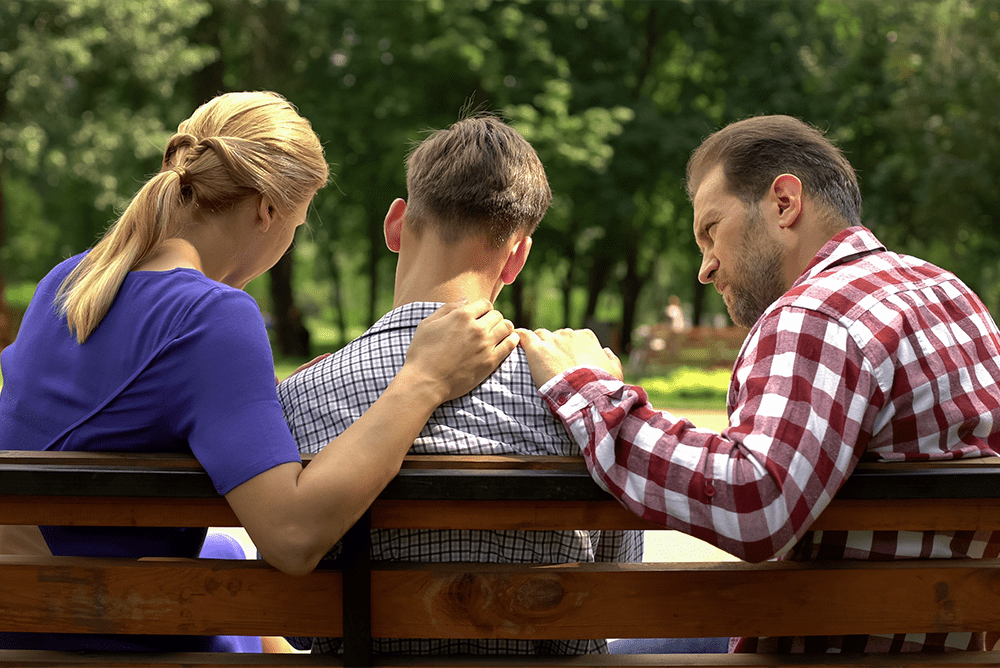There is a chance that you know someone with an addiction or substance use disorder (SUD). Given the prevalence of addiction in our society, you likely have at least one close friend or family member who has a problem with using drugs or alcohol. If so, you know all too well that SUD doesn’t just affect the person with the addiction. No, SUD is truly a family affair. An addiction can tear families apart, damage close friendships and cause financial problems as more and more income goes to buy drugs or alcohol. In addition, having a family member with addiction increases the likelihood that emotional or physical abuse will occur.
Family and Treatment
Because addiction affects the entire family and not just the family member with the SUD, most drug and alcohol treatment centers include families in treatment. This is done not only to benefit the individual in treatment but to address the family’s need for healing.
Although the family programs offered at different rehab centers vary, they all include similar elements. For example, if your loved one is in treatment, you will most likely be able to call them frequently and visit on a regular basis. You may also find yourself in therapy sessions with your loved one, discussing the ways in which their addiction has affected the whole family’s daily life and relationships among its members. At many centers, the family will also be able to attend therapy sessions without the patient to explore the wide range of emotions that they have experienced as a result of the patient’s addiction. These sessions are intended to aid family members in their own recovery.
Education for Families
Most treatment programs also offer education programs for families. At Pinelands Recovery Center of Medford, families learn about the science of addiction and related topics like codependency. The family education program also covers topics like setting healthy boundaries, effective ways to communicate, developing greater self-control, learning conflict resolution techniques and mastering other skills designed to assist with emotional growth and health. Pineland’s program was also developed to give people the skills they need to be part of their loved one’s recovery.
Supporting vs. Enabling
One of the most important lessons to learn, and one of the most difficult, is the difference between supporting and enabling your loved one. Enabling behaviors are common in families where addiction is present, and there is a very fine line between supporting and enabling. In general, if you offer support to someone, you are assisting them with tasks they can’t do themselves or helping them gain control of their behaviors or their life. When you enable someone, you keep them from dealing with the negative consequences of their actions, which can give them the idea that their bad behavior is acceptable.
An example of enabling would be calling in sick for your partner when in reality, they are still drunk from the night before. Your intent is to help and protect the person, which is a natural impulse, but in reality, you are enabling their alcohol abuse. You might let a child stay home from school because they aren’t feeling well when actually they didn’t finish an assignment. This teaches the child that there are no consequences for not completing their schoolwork. Other examples include rescuing someone, getting your loved one out of trouble, lying for someone, making excuses for someone, or routinely putting your own needs second to take care of someone who really shouldn’t need it.
Other Lessons to Learn
In a well-planned family program, you will learn that it’s okay to take care of yourself and that you also need to heal, not just your loved one in treatment. You will discover that the broad range of emotions you have experienced as a result of your loved one’s abuse of drugs or alcohol – anger, fear, guilt, hope – are normal and valid. You will learn the difference between encouragement and triggering and the difference between acceptance and rejection. You will discover that your loved one’s addiction is not your fault; many factors come together to cause addiction, but it’s nothing that you did. You will also learn that fixing your loved one is not your responsibility but theirs. The person with the SUD is responsible for their own recovery. However, it is your responsibility to take care of yourself so that you can be there for your loved one. By doing so, you can truly support your loved one as he or she works toward recovery.
Because substance use disorder impacts not only the person struggling but also the people they are close to, especially family members, the family needs to be involved in the treatment process. One of the indications that a person will be successful in recovery is family involvement that begins early in treatment. Because of this, many drug and alcohol treatment facilities have family programs. The purpose of these programs is two-fold: to support the person seeking treatment as well as their family members. Pinelands Recovery Center of Medford, a New Jersey rehab center, offers a comprehensive family program designed to support families as well as the person who is in treatment. If you are helping a loved one with opioid addiction, alcohol addiction, cocaine addiction, or another type of substance addiction, Pinelands is here to help. For more information on our program and how we can help your family, call us today at (877) 557-5372.
